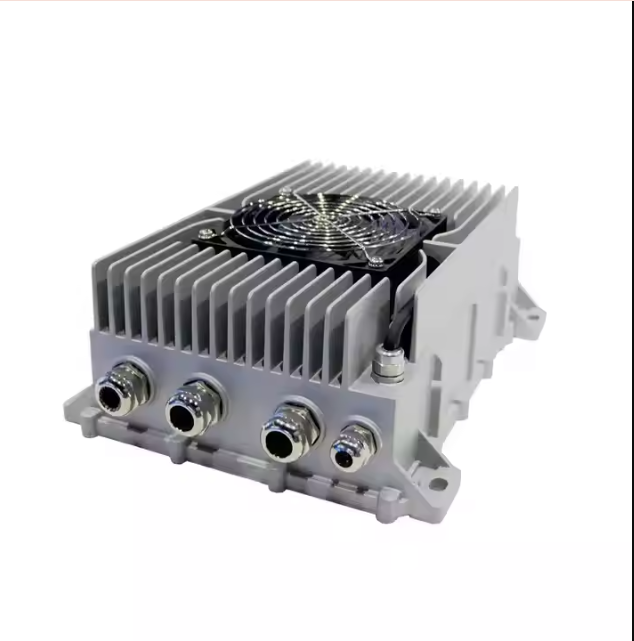The healthcare industry is constantly evolving, driven by the need for precision, quality, and innovation. Medical devices, implants, and instruments require an unparalleled level of accuracy and consistency, making advanced manufacturing technologies indispensable. One such technology that has gained immense importance is Computer Numerical Control (CNC) machining. Medical CNC machines are playing a pivotal role in shaping the future of healthcare manufacturing, offering unmatched precision, speed, and flexibility in producing medical components.
In this article, we will explore how medical CNC machines are transforming the healthcare sector. We’ll discuss the types of CNC machines used in medical manufacturing, the advantages they offer, and how they contribute to the production of vital medical devices and implants.
What is Medical CNC?
CNC machining is a manufacturing process that uses pre-programmed computer software to control the movement of tools and machinery. In medical CNC machining, specialized machines are used to produce components for medical devices, implants, surgical instruments, and more. These machines can operate with extreme precision and efficiency, producing high-quality parts that meet strict industry standards.
Medical CNC machines can work with a wide variety of materials, including metals, plastics, ceramics, and composites. Depending on the specific requirements of the medical product being produced, CNC machines can perform operations such as cutting, drilling, milling, turning, and grinding.
Types of CNC Machines Used in Medical Manufacturing
In the medical field, several types of CNC machines are employed for different manufacturing tasks. Each type has unique capabilities that make it suitable for specific applications in the healthcare industry.
1. CNC Milling Machines
CNC milling machines are one of the most commonly used machines in medical manufacturing. These machines use rotary cutters to remove material from the workpiece and are capable of performing a variety of operations, including cutting, drilling, and shaping. In medical applications, CNC milling machines are used to create parts for surgical instruments, implants, and orthopedic devices.
Milling machines can work with metals such as stainless steel, titanium, and aluminum, which are commonly used in medical implants due to their strength, biocompatibility, and corrosion resistance.
2. CNC Lathes
CNC lathes are used for turning operations, where the workpiece is rotated while a cutting tool removes material to shape it. In the medical industry, CNC lathes are used to produce cylindrical components such as bone screws, rods, and other implantable devices. These machines are known for their ability to produce highly precise, repeatable parts with a smooth finish.
3. CNC Swiss Machines
CNC Swiss machines, also known as Swiss-style lathes, are particularly suited for producing small, intricate medical components with tight tolerances. These machines are commonly used in the production of medical devices such as needles, catheters, and dental implants. Swiss machines are known for their ability to handle delicate and complex parts, making them ideal for the demanding requirements of medical manufacturing.
4. CNC Wire EDM (Electrical Discharge Machines)
CNC wire EDM machines use electrical discharges (sparks) to cut through materials, which is ideal for producing extremely fine and detailed parts. In the medical field, wire EDM is often used to manufacture components such as surgical instruments, medical device connectors, and precise mold cavities. This technology allows for high-precision cuts in tough materials like titanium, which are commonly used in implants and prosthetics.
5. CNC 3D Printers (Additive Manufacturing)
While not a traditional CNC machine, CNC 3D printing, or additive manufacturing, is increasingly being used in the medical industry. 3D printing allows for the creation of complex, customized parts by adding material layer by layer. In the medical field, 3D printing is used for creating customized implants, prosthetics, and even anatomical models for pre-surgical planning.
Although additive manufacturing is not always as fast as subtractive machining (such as milling or turning), its ability to create intricate geometries and personalized solutions has made it a valuable tool in medical CNC applications.
Advantages of Medical CNC Machines
Medical CNC machines offer several significant advantages that make them the go-to choice for manufacturing medical components. These benefits include:
1. Unmatched Precision and Accuracy
The healthcare industry requires components that meet extremely tight tolerances to ensure the safety and effectiveness of medical devices and implants. Medical CNC machines are capable of producing parts with sub-micron precision, making them indispensable in medical manufacturing. Whether it’s a surgical instrument or an implant, the accuracy provided by CNC machines ensures that every component fits perfectly and functions as intended.
2. Consistency and Repeatability
In medical manufacturing, consistency is key. CNC machines can produce identical parts in large quantities with minimal variation, ensuring that each part meets the required specifications. The ability to reproduce parts with such repeatability is crucial in the medical field, where even the smallest discrepancies can lead to complications or product failure.
3. Customization and Flexibility
Medical CNC machines can be easily reprogrammed to create custom parts and components. This is particularly beneficial in fields like orthopedics and dental implants, where individualized solutions are often required. CNC machines can produce customized implants that perfectly match a patient’s anatomy, ensuring optimal fit and functionality. Moreover, the ability to quickly switch between different product designs and prototypes allows manufacturers to remain agile and responsive to market needs.
4. Material Versatility
CNC machines can work with a wide variety of materials, from biocompatible metals like titanium and stainless steel to high-performance plastics and polymers. The ability to handle different materials allows manufacturers to create a wide range of medical components, including surgical instruments, implants, and prosthetics. The material versatility also enables the use of materials that are durable, lightweight, and corrosion-resistant—ideal qualities for medical devices.
5. Increased Speed and Efficiency
CNC machines operate quickly and can work around the clock, enabling manufacturers to produce medical components in a fraction of the time it would take with traditional methods. The automation of the machining process reduces the need for manual labor and allows for more efficient production. Faster production times also reduce lead times, which is particularly important when it comes to responding to urgent medical needs.
6. Reduced Human Error and Improved Safety
CNC machines are automated and require minimal human intervention once set up, which reduces the potential for errors and inconsistencies that can occur with manual manufacturing. This is especially important in the medical field, where mistakes can lead to serious consequences. The precision of CNC machines ensures that parts are made to the highest standards, reducing the likelihood of defects and improving the overall safety of medical devices.
Applications of Medical CNC Machines
Medical CNC machines are used in a variety of applications across the healthcare industry, including the production of medical implants, surgical instruments, and custom prosthetics. Some of the key applications include:
1. Orthopedic Implants
CNC machines are widely used in the production of orthopedic implants, such as hip and knee replacements. These implants are typically made from biocompatible metals like titanium and need to be precisely shaped to fit the patient’s anatomy. CNC machines can create implants with intricate features and precise geometries, ensuring a proper fit and improved patient outcomes.
2. Dental Implants
Dental implants require high precision to ensure proper alignment and functionality. CNC machines can create custom dental implants that are tailored to the patient’s mouth, offering a better fit and faster healing time. CNC milling and turning are commonly used in dental manufacturing to produce crowns, bridges, and other dental components.
3. Surgical Instruments
Surgical instruments, such as scalpels, forceps, and scissors, need to meet strict quality and precision standards. CNC machines are employed to create these instruments, ensuring that each part is sharp, durable, and functional. CNC machines also allow for the production of complex shapes and designs that improve the performance of surgical tools.
4. Custom Prosthetics
CNC machines are increasingly being used to create custom prosthetics that fit an individual’s unique anatomy. From prosthetic limbs to hearing aids, CNC technology enables the creation of highly personalized medical devices that offer better comfort and functionality for patients. The ability to precisely design and manufacture these devices helps improve the quality of life for individuals with disabilities.
5. Medical Device Components
Medical devices often require small, intricate parts such as connectors, housings, and tubing. CNC machines are ideal for manufacturing these components with tight tolerances and high reliability. Additionally, CNC machining allows for the mass production of high-quality components, ensuring that medical devices operate at optimal levels.
Conclusion
Medical CNC machines have become essential tools in the healthcare industry, offering unparalleled precision, efficiency, and versatility in the manufacturing of medical components. From producing orthopedic implants to custom prosthetics, CNC machines enable the production of high-quality, safe, and effective medical devices that improve patient outcomes. As technology continues to evolve, medical CNC machines will remain a cornerstone of medical manufacturing, helping to meet the growing demand for advanced, personalized healthcare solutions.






